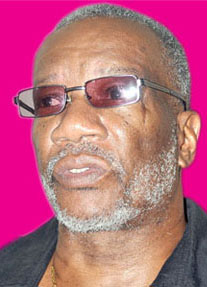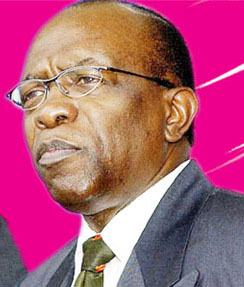Something quite significant happened in local football recently. The Georgetown Football League (GFL) secured a court injunction that brought a halt to the Guyana Football Federation’s (GFF) plans to elect a new executive. What the court ruling did was to shatter the long-entrenched myth that the GFF, as an affiliate of international football’s governing body, FIFA, was somehow, out of the reach of municipal law in the society in which it functions.
It is a myth that had always encouraged the view that the GFF- like the various other regional football federations comprising the Caribbean Football Union (CFU) – was a law unto itself; and if there remains a consummate fear in local football circles of the state’s embrace, the myriad controversies associated with the ineptitude of the GFF and the protracted tenure of its serving President, Colin Klass have caused observers to advocate some measure of government intervention to curb what are widely perceived to be the excesses of the GFF. Football, however, is the most popular sport in Guyana and the government, at least up until now, has chosen to keep its distance.

The rules of FIFA while not pronouncing explicitly on the immunity of affiliate Federations from municipal law or from government
intervention strongly advocates the non-intervention of external agencies, chiefly governments, in pursuit of the settlement of disputes in football, urging instead that options like arbitration be pursued in dispute settlement. The strength of the myth of immunity, however, has meant that the local Federation has always managed to run its own show, up until now when a dispute with one of its affiliates, the Georgetown Football Association (GFA) led to resort to the courts.
Interestingly, the local precedent coincides with what, in recent weeks, has been a serious crisis inside FIFA itself and inside the CFU over a scandal in which it is alleged that CFU head and FIFA Vice President, Austin “Jack” Warner engineered the bribing of CFU Heads in exchange for a commitment that they would use their votes to help remove the incumbent President, Joseph “Sepp” Blatter from office. The incident not only sparked an internal FIFA investigation that has effectively brought Warner’s career as a FIFA official to an end but may well have precipitated the opening up of FIFA itself to external scrutiny, a circumstance which, given the numerous allegations and suspicions of extreme corruption within the organization, it has always sought to avoid.
Unquestionably, the outcome of the FIFA Warner enquiry could have a significant impact on the future of Caribbean football, particularly if only in the short to medium term. It is no secret that the regional game now enjoys a higher international profile and that that profile has been credited to the Trinidadian Warner’s influence with the game’s world governing body. For all the criticism that he has attracted, there is much merit in the view that football in the region has benefitted from Warner’s influence within FIFA and that his resignation from the organization now raises doubts about the Caribbean’s place in world football.
Here in Guyana, the wider crisis associated with the cash-for-votes scandal has coincided with the GFF’s own home-grown headaches which have to do, principally, with who runs the Federation. Securing and holding on to office in some of the various bodies responsible for the administration of sport in Guyana is primarily a function of patronage, cronyism and influence-pedalling. More than that, there is widespread perception that those who hold high office in the sports of football and cricket particularly are more concerned with personal aggrandizement than with the good of the game.

Klass has maintained his hold on the the GFF’s presidency by retaining the loyalty of most of the local sub-associations whose votes are what matters. In recent years, however, his hold on power appears to have been slipping. Criticisms of him have ranged from claims the FIFA’s US$250,000.00 annual subvention to the GFF have not been spent wisely and that he travels extensively and enjoys the ‘high life’ at FIFA’s expense. Then there are those who simply say that he has been in the job for too long, the same criticism which the former Jamaican Prime Minister Edward Seaga made of Warner. A measure of just how disliked Klass is in some circles is to be seen in the fact that some of his critics have dismissed his clear declaration that the GFF did not benefit from the alleged Warner/Bin Hammam cash-for-votes scandal. Klass has over the years learnt how to fend such criticism off.
If previous challenges to Klass’ presidency of the GFF have all dissolved on account of the loyalty of the various sub-associations, this time, he faces a bigger headache. What the court injunction that brought a halt to last month’s Annual General Elections – at which he was again expected to be re-elected – has done is to remove him from a familiar comfort zone. Indeed, long before the injunction itself, the issue came to national attention when the GFL, the umbrella body for clubs in Georgetown nominated Odinga Lumumba, President of the country’s top football club, Alpha United, to challenge Klass for the Federation’s presidency. A political adviser to President Bharrat Jagdeo, Lumumba is known to be an abrasive and controversial figure who is probably no better-liked in local football circles than is Klass. Better-known for his promotion work in beauty pageantry and boxing through his organization, McNeal Enterprises, Lumumba’s local and regional success as the boss of Alpha has, however, provided him with a credential in football which the GFA feels is good enough to make him President of the local Federation. There are, however, many others who disagree strongly.

More tough times could lie ahead for the GFF. The legal opinion is that having set a precedent by securing an injunction to halt the Federation’s elections, the GFA may well have attracted FIFA’s attention to the problems facing the local Federation. It will be recalled that FIFA recently imposed a suspension on the Football Federation of Belize (FFB) after the government informed the FFB that it was “not authorized to represent this country in any local or international competition or in any other forum for football on behalf of the Government, People and Nation of Belize.” The Federation had failed to meet requirements for registration with the country’s National Sports Council. FIFA subsequently wrote to the FFB indicating that the ruling by the government had represented a clear breach of its rules regarding trhe minimization of government intervention in football. The Belize Government, however, was up to FIFA’s veiled threat. It shot back a sharp response indicating that it would not provide any security or policing assistance to away fans in the scheduled home match. FIFA was left with no option but to suspend the FFB.
While neither side would probably admit it there is no love lost between the Government of Guyana and the GFF and the coldness has, on at least one occasion, spilt over into a war of words between the two. Observes are also of the view that the government is keen to rein in the Federation and perhaps bring local football much more under its own direct control. In this context it may well be eyeing both the recent court injunction and the outcome of the FIFA’s confrontation with the Belize Government and biding its own time.




